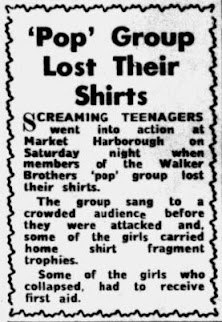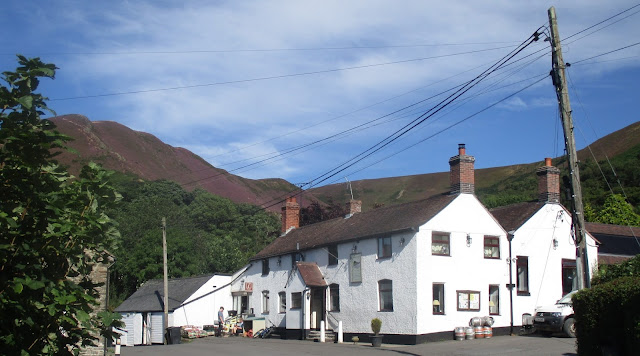Stuart Whomsley attempts to do what the frontrunner for the Conservative leadership can't.Robert Jenrick has recently stated that Englishness is under threat. However, he seemed unable to say what Englishness actually is. He knew the term had currency, but on enquiry he could offer no more. Like a patient trying to blag medication for an illness that they do not have because that medication can be sold on the streets. What are your symptoms? I have the symptoms of that illness.
But what exactly are your symptoms? The illness symptoms. Jenrick, when asked, could not define Englishness; he looped around about a shared history and culture, but was unable to say what that was or to give any examples.
So I will try to help. How could I not try to help, with Jenrick being the Newark MP where I live? I could say my neighbour, but he does not seem to get here much, even before his leadership bid.
When you try to define Englishness there are problems. The territory of Englishness has been invaded by nationalists in recent years, people who have a fuzzy blur into racists and white supremacists. Therefore, this can make be a tricky topic to engage with; the brand has been sullied.
Another issue to consider is the question of Britishness compared to Englishness. Many of the features of what defines Englishness do cross over into what is Britishness. But there are differences.
Scotland, Wales, and Northern Ireland are much smaller in terms of population, and though punching above their weight, have been the junior partners in the union, and some have felt a sense of subjugation by the English. Something the English themselves have never really felt. That is an English thing; no one will push the English around.
Englishness is about a language, that language, the English language, that has spread around the world and has been a bond between England and all the people around the globe who use it. People from England have also used the language well and we have a strong literary heritage in prose, poetry and song.
The people of England have been shaped by being an island nation, that there is bit of water around us kept us separate from the rest of the world. Maybe, this is one of the reasons why people arriving by small motes have hit a nerve with some people. The moat is being repeatedly breached.
Being surrounded by water gave us oceans that we could utilise to take over, if briefly, large parts of the rest of the world. We are a nation of pirates, then colonialists. Not a heritage that we can be proud of without reservations. But after we went out and invaded the world some people have followed us back home, which has greatly enriched the nation, more than the Elgin marbles have.
We are a nation that has a proud history of democracy, even if sometimes we have been hypocritical about it, and even if it has been eroded in recent years, democracy is still a value that is dear to the English.
I remember being on the march to stay part of the EU after the Referendum vote, a man who had been an accidental passer-by, stopped and went red in the face shouting at us that we needed to obey democracy, that a referendum had occurred, and we needed to abide by it.
The religious values of England are unsurprisingly, those of the Church of England. Which is basically Catholicism with the Pope and obedience to him removed - replaced for a while by the monarch, but then only the monarch nominally. It is also a religion without the guilt that seems to be bequeathed to every Catholic. In the Church of England there is nothing to be guilty about: you were born English, and so you are winning, chin up, chest out, sing a hymn.
England has been organised around the class system going back for centuries. It is very English to try and work out where someone else fits, because of how they talk, how they dress, and fitting them within the English sociological landscape. Not that I am a fan of this, but it is part of being English, with the monarch as the lid that keeps it all in place.
The monarch, even for Republicans, still has a central place in our national consciousness, that has long past for many previous monarch ruled countries. We divide our history up by them, we name our streets after them, we still sing about them being long to rule over us. This is very English.
England is a country with a super high density of historical places; you cannot drive very far from wherever you are without soon passing a marker of an historical figure or event. It might not be labelled, but when you stop and check it out, there will be historical treasure piled upon historical treasure. It is simply falling out of the hedgerows and ancient churches whichever way you turn at the next crossroads.
In terms of economics what could be more English than the economic philosophy of John Maynard Keynes, which shaped the post war years? A very English pragmatic approach to economics that stands in the face of the more ideologically driven approaches of communism, monetarism or neoliberalism.
Englishness means being the inventor of rules for games. We might not have been the original inventors of the games themselves, but we were the ones who set to work drawing up rules of how the games are to be played, before teaching everyone else how to play them by our rules (very English), so that they can beat us at them. What can be more English than cricket? A game that in its proper format, test cricket, is played over five days with meal breaks.
Pets, I have not mentioned pets. The English are a nation of animal lovers. This really got going under the Victorians. We went out into the wild and captured animals and turned them from being wild and free, to being our pets. So it is not all rosy, but we were at the front of animal welfare, and our love of pets, particularly our dogs, is a defining feature of Englishness. This is one of the British owned features too.
The people I know, directly or indirectly, whose parents were migrants seem to have picked up what it means to be English, no problem. It is some kind of osmosis achieved by growing up here, no matter where your family come from you are taking on Englishness, from the details of regional accents, to the bigger values stuff. They get it. They get what it means to be English. They too can fail at penalty shoot-outs. Did I mention the English sense of humour?
Ironically, and what could be more English than irony, the people who often make a big fuss about Englishness do not seem to be looking at England for their values base, but are instead looking at the USA and longing for us to be the 51st state, thus undermining Englishness.
So going forward, Englishness will continue to thrive, in part because of the people who migrated here in more recent times than the Angles, Saxons or Normans. They migrated here because they too wanted to be part of the English dream.
You can follow Stuart Whomsley on Twitter.


























